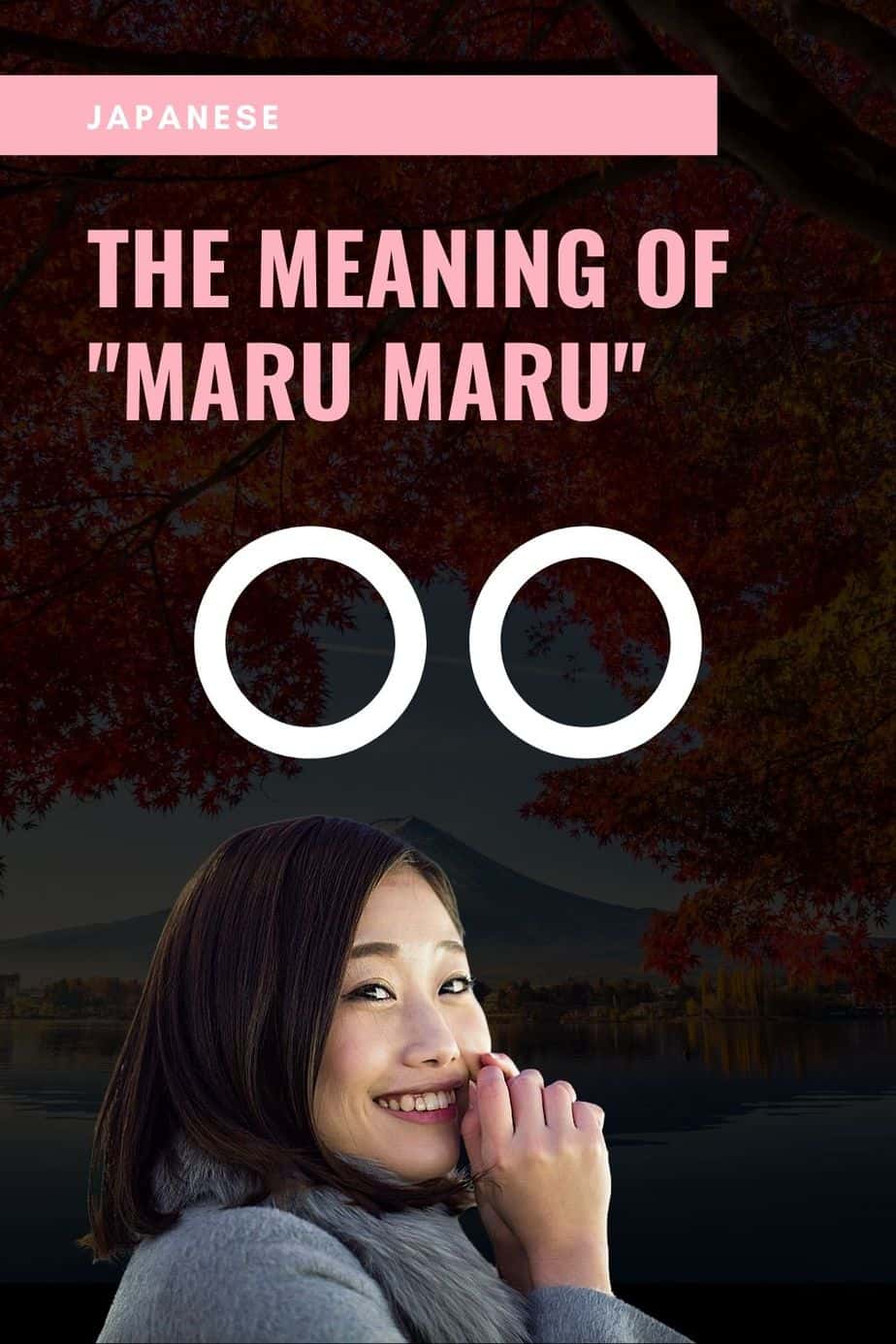What does maru-maru mean in Japanese? Basically, it can be two things, and we’re going to cover the whole, entire, complete thing in this article (that’s a bad joke you’ll understand in a moment).
Let’s keep it sweet and simple to start.
What is the meaning of maru-maru in Japanese?
In Japanese, maru-maru means one of three things. One form is 〇〇, which acts like a blank space in English, basically a placeholder. The other form is 丸々, which either means “round, plump, chubby,” or “wholly, completely, entirely.”
The Big O’s
Let’s start with something on the simple side of things. That is to say nothing at all. That’s right, one of the easiest kanji in all of the Japanese language is 〇.
This character is as direct and simple as it looks, and yet it also has many different jobs in the language. It can be used to mark an answer as correct (same as a check-mark, like we use in the US).
It can be used to refer to a circle (no surprise there). It can be used as a zero (in this case it’s either pronounced zero or rei). And, at last, it can be used as a placeholder.
When used as a placeholder, it often comes in a pair as 〇〇, pronounced maru-maru. This maru-maru placeholder functions in virtually the same way as a blank space would in English.
It has an alternate pronunciation as well (although it seems to be an “unofficial” one, as far as my sources reveal). When reading 〇〇 as a blank, you can also say nani-nani.
Also, in that placeholder way, it can equally function to censor words (just like we use !*#@$% in English). In this case you would have to use your judgment to choose how to pronounce the word, but you wouldn’t read out the 〇’s as maru’s.
One creative use of the 〇〇 that I found was in a manga titled ひとりぼちの〇〇生活 (hitori-bochi no maru-maru seikatsu. This means, roughly, “The _____ Life of the Lonely.” That would be a hard title to read aloud in English. Easy peasy in Japanese!
Origin of the 〇
I couldn’t find a clear origin for this character online. It was in use in China at least as early as the 12th century, and likely was not natively develop (like most Chinese characters were).
The most likely origin is that it came out of either South Asia or the Middle East, coming from its use as a placeholder in the decimal sense of zero.

Rounding out the meaning of maru-maru
Another, quite common, way to write maru is 丸. This character dates all the way back to the oldest days of Chinese script, originally simply indicating something that could be turned or flipped.
In essence, something that could be rolled—something round.
Over time this solidified into the common sense we use today, which is of something that is round in a chubby, plump, or filled way.
There are, basically, two ways to write this. One is 丸々, which can be used as its own noun, or as a verb, if you attach suru (or one of the suru conjugated forms) to the end.
Another way is to make it its own verb by taking the second half and stripping away the kanji and imbuing the final syllable with verbial powers!
Okay, let me illustrate. 丸まる looks almost the same as what you see above, and it is, in fact, pronounced the same, but it functions ever so slightly differently.
This one, in part because the second half is written in kana instead of kanji, is a regular verb.
It can be conjugated all on its own, without needing to add anything else. It means, on its own, “to become rounded,” or, “to roll into a ball.”
In order to understand the way this form of maru-maru is used, let’s take a look at a couple of example sentences.
The need for this will become especially apparent when we get to the next (which is also the last) section.
毎日おじいさんとおばあさんが仔猫にミルクを飲ませましたら、仔猫には、まもなく、可愛らしい丸々とした猫に、なりました。
Mainichi oji-san to oba-san ga koneko ni miruku o nomasemashitara, koneko niwa, mamonaku, kawai-rashi maru-maru toshita neko ni, narimashita.
Every day grandfather and grandmother gave the kitten plenty of milk, and soon the kitten grew nice and plump.
あの赤ん坊は丸々していて健康的だ。
Ano akanbo wa maru-maru-shiteite kenkoteki da.
That baby is fat and healthy.
Completing the meaning of maru-maru
The final meaning of maru-maru is 丸々 (I know, familiar, right?). You’ll have to use context to distinguish this meaning from the preceding one.
It’s simple (and distinct) enough though. In this case 丸々 just means “wholly, completely.”
Let’s look at a couple of example sentences to help clear up the difference/
丸々2時間の仕事。
Maru-maru ni-jikan no shigoto.
I worked for an entire two hours.
午後はまるまる買い物なんだから。
Gogo wa maru-maru kaimono nanda kara.
We have all afternoon to shop.
明日で丸々1時間雨が降り続くことになっているでしょう。
Ashita de maru-maru ichi-jikan ame ga furi-tsudzuku koto ni natteiru desho.
It will have been raining a whole week tomorrow.

“I’ve lived in Japan on-and-off for the last five years, travelling to (almost) every corner of the Land of the Rising sun. I’ve deepened my love of the language with big hauls from Sapporo book stores, by chatting in Shinjuku coffee shops, drinking in Osaka “snack bars,” exploring distant Okinawan islands, and hitching rides with monks in Aomori. Japanese is a wide and deep language, and I’m always eager to dive in deeper.”

